High-Impact Practices 2. Preparing Honors Students for Transdisciplinary Collaboration
Paul Heilker, Associate Dean for Academic Affairs, Virginia Tech Honors College
Just as Honors programs were reimagined and grew exponentially as part of the massive U.S. educational response to the Soviet launch of Sputnik I in 1957, Honors programs today can help reimagine undergraduate education to address urgent matters of national security in the context of contemporary global challenges, such as climate change, pandemics, poverty, displaced populations, and water security. Universities must lead the way in addressing such “wicked problems,” and Honors programs are especially well positioned to lead in these efforts since they can bring together exceptional students and faculty from a wide range of scholarly specializations.
In this vein, according to the Association of American Colleges and Universities, higher education needs to change to equip learners with the skills and mindsets they will need to address 21st century problems. To this end, universities must help students become –
- comfortable with uncertainty and ambiguity;
- capable of managing unscripted real-world problems that have innumerable causes, are difficult to describe, and do not have one right answer;
- adept problem solvers who can harness interdisciplinary perspectives to generate non-obvious, truly innovative solutions;
- empathetic agents able to seek and understand the perspectives of diverse, multiple stakeholders;
- bold, imaginative thinkers able to take risks;
- self-directed lifelong learners and transdisciplinary collaborators who can embrace the value of productive failure as a key part of the learning process.
In 2016, the University Honors Program became the Virginia Tech Honors College precisely to address these pedagogical and educational needs. In the time since, the Honors College has comprehensively revised its curriculum to focus on transdisciplinary, collaborative, and experiential learning. These efforts include the creation of a suite of four courses on quantitative/qualitative research practices, transdisciplinary seminars, trans-sector innovation studios, and an Honors Minor in Collaborative Discovery.
The Virginia Tech Honors College is now scaling-up these offerings to benefit the maximum number of students possible. UH 1404: Principles of Collaborative Discovery, our new, required course for all incoming Honors students, provides students with the overall context for their efforts as they pursue their Honors education at Virginia Tech, including critical introductions to disciplinarity, interdisciplinarity, multidisciplinarity, and transdisciplinarity; qualitative and quantitative research methods, "wicked problems" and systems thinking, problem analysis and iterative thinking, and the ethical dimensions of trans-sector activity. Having successfully completed this introductory course, students will share a common set of expectations, understandings, and vocabulary with their faculty, student colleagues, and real-world partners, a cohesiveness that will better support both individual success and collective development of transdisciplinary collaboration skills among Honors students at Virginia Tech.
This presentation will include explication of individual lesson plans from the course syllabus, discussion of the considerable logistics involved in offering UH 1404 to 400 students per semester, and an analysis of assessment data from our first year of teaching the course to offer suggestions for those who are considering similar programmatic revision.
